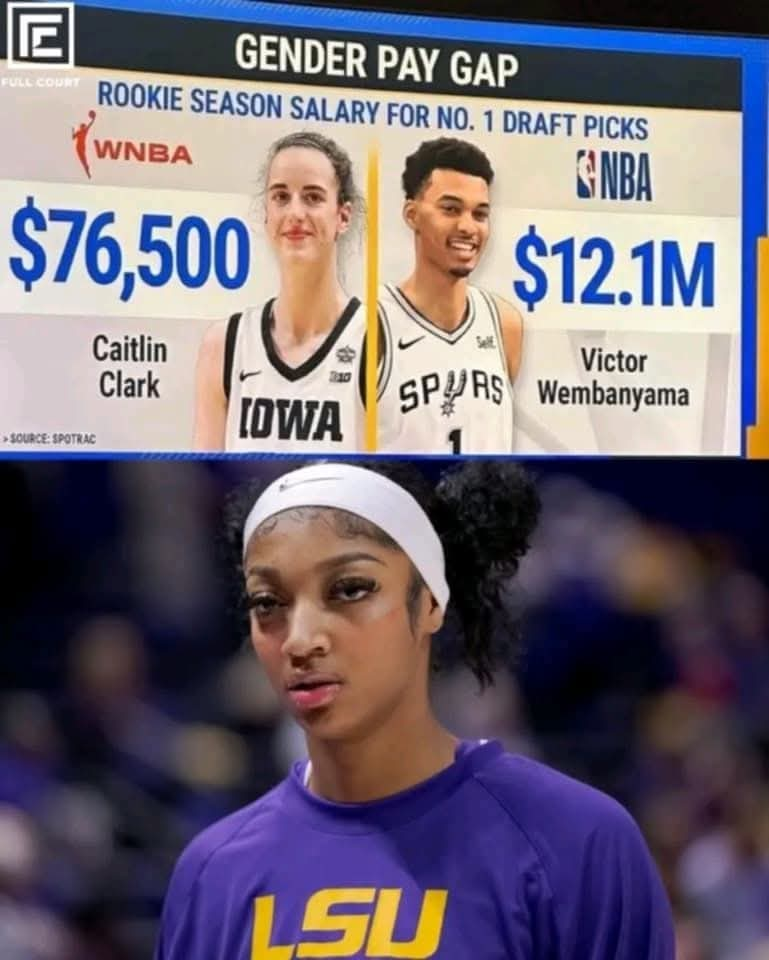
The Women’s National Basketball Association (WNBA) is currently facing a significant labor dispute, as multiple players express dissatisfaction over pay disparities. Notably, Chicago Sky forward Angel Reese has publicly indicated that players might consider striking if their demands for better compensation are not met. This development underscores the growing tension between the league and its athletes regarding equitable revenue sharing and salary structures.
**Angel Reese’s Stance on Compensation**
Angel Reese, a prominent figure in the WNBA, has been vocal about the financial challenges faced by players. During an episode of her podcast, “Unapologetically Angel,” Reese discussed the possibility of a strike if the league does not address the players’ concerns in the upcoming collective bargaining agreement (CBA) negotiations. She stated, “I need to be in the [players’ union] meetings because I’m hearing that if [the league] don’t give us what we want, we’re sitting out.” citeturn0search3
Reese’s comments highlight the frustration among players regarding current salary structures. Despite the league’s growth in popularity and revenue, WNBA players receive a smaller percentage of league revenue compared to their counterparts in other major sports leagues. Specifically, WNBA players receive only 9.3% of the league’s total revenue, whereas athletes in the NBA, NFL, and NHL receive nearly 50%. citeturn0news25
**Financial Disparities and Player Salaries**
The financial disparities in the WNBA are evident when examining player salaries. For instance, Reese’s rookie salary was $73,439, which she revealed is insufficient to cover her living expenses, including an $8,000 monthly rent. citeturn0search2 This situation is not unique to Reese; many WNBA players have historically sought additional income by playing overseas during the offseason, highlighting the league’s compensation challenges.
The current CBA, which the players’ union opted out of in October 2024, is set to expire following the 2025 season. This decision was driven by a desire to negotiate better terms, including fairer revenue-sharing agreements, increased salaries, and improved benefits. The players aim to secure a more equitable distribution of the league’s growing revenues, reflecting their contributions to its success.
**League Growth and Revenue Sharing**
The WNBA has experienced significant growth in recent years, marked by increased viewership, attendance, and lucrative media deals. In July 2024, the league announced an 11-year media rights agreement worth over $2.2 billion with Disney, Amazon Prime Video, and NBC Universal. citeturn0search3 Despite this financial upturn, the players’ share of the revenue remains disproportionately low, fueling demands for a revised revenue-sharing model akin to that of the NBA, where players receive approximately 50% of the revenue.
Los Angeles Sparks star Kelsey Plum has been among the voices advocating for such a model, emphasizing the need for a system that fairly compensates players in line with the league’s financial success. The upcoming CBA negotiations present an opportunity to address these concerns and potentially restructure the financial framework of the WNBA.
**Potential Impact of a Strike**
The possibility of a strike poses significant implications for the WNBA. A work stoppage could disrupt the league’s operations, affecting scheduled games, revenue streams, and the momentum gained in recent years. However, from the players’ perspective, a strike may be a necessary measure to achieve long-overdue reforms in compensation and working conditions.
The solidarity among players, as indicated by Reese’s comments and the support from peers like Dallas Wings guard DiJonai Carrington, suggests a unified front in the pursuit of equitable treatment. Carrington concurred with Reese’s sentiments on the potential for a strike, acknowledging it as a “possibility.” citeturn0search1
**Broader Conversations on Gender Pay Equity**
The situation in the WNBA reflects broader conversations about gender pay equity in professional sports. Female athletes across various disciplines have been advocating for fair compensation, equal opportunities, and recognition commensurate with their male counterparts. The WNBA players’ stance adds to this ongoing dialogue, highlighting systemic issues that extend beyond a single league.
As negotiations for the new CBA approach, the outcome will not only impact the future of the WNBA but also set a precedent for women’s professional sports. Achieving a fair and equitable agreement could serve as a catalyst for change, inspiring similar movements in other sports and industries.
**Conclusion**
The WNBA stands at a pivotal juncture, with players advocating for compensation that reflects their contributions to the league’s success. Angel Reese’s public statements about a potential strike underscore the urgency of addressing pay disparities and implementing fair revenue-sharing models. The forthcoming CBA negotiations will be crucial in determining the league’s direction and its commitment to valuing its athletes appropriately. As the WNBA continues to grow, aligning its financial structures with its principles of equity and excellence remains imperative.
